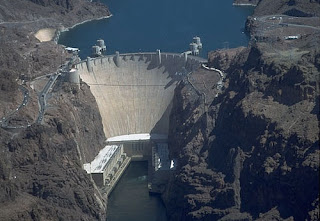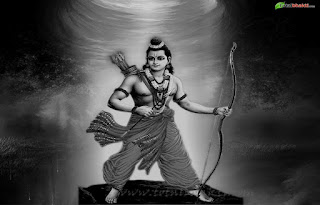Over to Ujjain
Ujjain – one of the most holy cities of Hindus and one of
the most ancient cities of India. It is one of the four Indian cities where
“The Grand Kumbh “fair takes place. The Fair occurs four times in twelve years
at four different places and draws Hindus in millions from across the country.
The number of people gathers at one place is highest in the world i.e. more
than 60 million people gathered at Allahabad in
2001.The four places apart from Ujjain are Allahabad, Nashik, and
Haridwar.
Ujjain is situated on the
banks of Kshipra River. . The river rises in
the Vindhya Range north of Dhar, and flows south across the Malwa Plateau to
join the Chambal River. It is one of the sacred rivers in
Hinduism. It is a perennial river on the banks of which “Kumbh “ Fair takes place .Earlier names of Ujjain were
Ujjaiyani,Avantika,Avanti .
Ujjain
is a city of temples; on every corner of street you can easily spot a temple
and long queue of devotees holding flowers and offerings for the god (Prasad).
Temples of all god and goddess can be found here but prominent ones are of
Shiva, Ganesha and Durga.
The famous ones among them are:
Mahakaleshwar Temple: - It is one of the 12 jyotirlingas in India, the
lingam at the Mahakal is believed to be swayambhu (born of it) deriving
currents of power (Shakti) from within itself as against the other images and
lingams which are ritually established and invested with mantra-shakti. The
idol of Mahakaleshwar is known to be dakshinamurti, facing the south. This is a
unique feature upheld by tantric traditions to be found only in Mahakaleshwar
among the 12 Jyotirlingas. The idol of Omkareshwar Shiva is consecrated in the
sanctum above the Mahakal shrine. The images of Ganesh, Parvati and Karttikeya
are installed in the west, north and east of the sanctum sanctorum. To the
south is the image of Nandi. The idol of Nagchandreshwar on the third storey is
open for darshan only on the day of Nagpanchmi.
Shipra River Bank getting ready for evening Aarti :
Bade Ganeshji Ki Mandir: - This temple situated above the
tank near the Mahakaleshwar temple, enshrines a huge artistic sculpture of
Ganesh, the son of Shiva. An idol of this size and beauty is rarely to be
found. The idol is huge and the real size of stomach of Lord Ganesha can be
guessed from the idol. The middle of the temple is adorned by an idol of the
pancha-mukhi (five faced) Hanuman. There is provision for learning of Sanskrit
and Astrology in the temple.
Kal Bhairava: - The worship of the eight Bhairavas is a part
of Saivite tradition and the chief among them is Kal Bhairava, believed to have
been built by King Bhadresen, on the banks of the Shipra. Worship of Kal
Bhairava is believed to have been a part of the Kapalika and Aghora sects. Ujjain was a prominent
centre of these two sects. Even today, liquor is offered as a part of the
ritual to Kal Bhairava Liquor ranges from local to Premium Scotch but Vairava
makes no discrimination between them. He savours all of them with equal taste. Cigarettes
are also offered and burning cigarettes are used as incensed sticks. Beautiful
paintings in the Malwa style once decorated the temple walls.
Sandipni Ashram :- Ujjain enjoyed the reputation of great
learning platform as early as Mahabharata period is evident from the Sandipni Ashram
where Lord Krishna , Balram and Sudama took regular tuitions from guru Sandipni
. It’s a great feeling to know that Lord Krishna flew from Mathura
to Ujjain to
learn lessons from Guru Sandipni. Sitting under the shades of peepal tree and
pondering that Lord himself came here for tuition will give you great feeling.
I personally liked this place very much.
Community Mass Wedding at Ujjain :
Other important temples are:
Gadkalika , Siddhvat , Mangalnath, Bhagrathi ki Gufa ( Cave ), Ram Ghat
, Shanni Mandir
Bhasma Aarti at Mahakaleshwar and Ksipra ji ki Aarti at Ram
Ghat are also the major attractions of Ujjain.
But for Bhasma Aarti you have to wake up very early in the morning as it starts
around 4 a.m But Ksipra ji ki Aarti you can catch in the evening around 7 p.m.
Apart from this religious and historical significance, Ujjain also holds
important place in astronomy. According to Indian
astronomers, the Tropic of Cancer is supposed to pass through Ujjain. It is also the first meridian of longitude
of the Hindu geography from about the 4th century B.C... Ujjain
enjoyed the reputation of being India’s
Greenwich. The
famous observatory (Vedha Shala) at Ujjain was
constructed by Maharaja Sawai Raja Jaisingh of Jaipur in 1719 when he was in Ujjain as the Governor of Malwa under the reign of king
Muhammad Shah of Delhi.
Besides being a brave fighter and a politician, Raja Jaisingh was exceptionally
a scholar.
Ujjain Connectivity
By Air: - Nearest airport is at Indore (55 km) which is
connected by flights with Delhi, Bhopal and Mumbai.
By Rail: - Ujjain is connected with Mumbai, Delhi,
Bangalore, Ahmadabad, Allahabad, Kolkata, Chennai & Cochin.
By Road : - Regular bus services connect Ujjain with Indore,
Bhopal, Ratlam, Gwalior, Mandu, Dhar and Omkareshwar.It takes little more than one
hour to Indore by road , nearest major commercial city. But the frequency of
buses is excellent.
Weather: The best season to travel is from February to April
and September to November. Summer extreme, Rainfall moderate, winter average.
Well maintained hotels are available near railway station at
reasonable prices. You won’t find any problem in getting rooms of your choice.
For the souvenir purpose. you can bring Henna (Mehandi) for
female members of your family and neighbours. Henna of Ujjain is famous for the deep red colour it
imprints on the hands of brides and also for its smoothness. It can be applied
as hair dye also.
By Kunal






